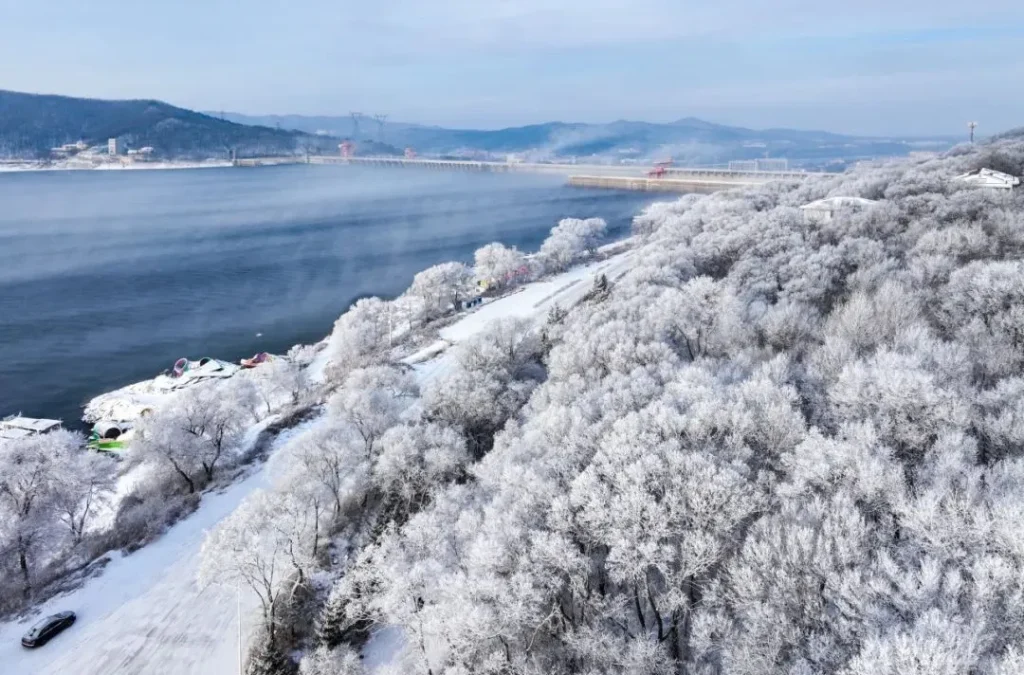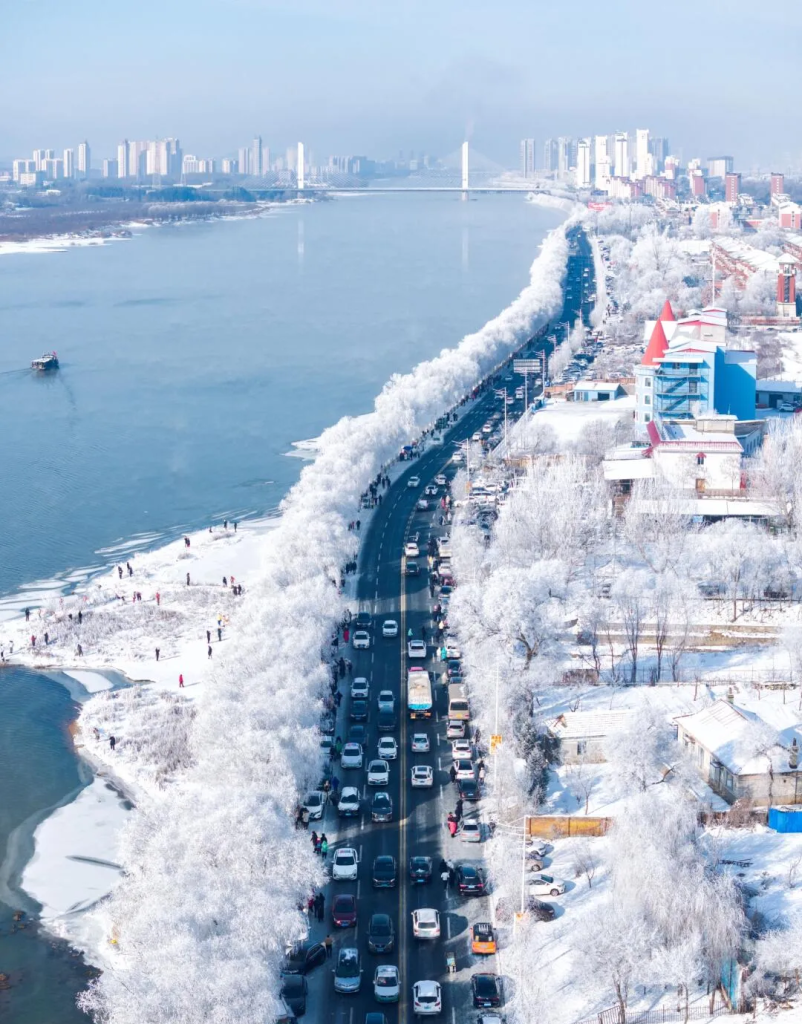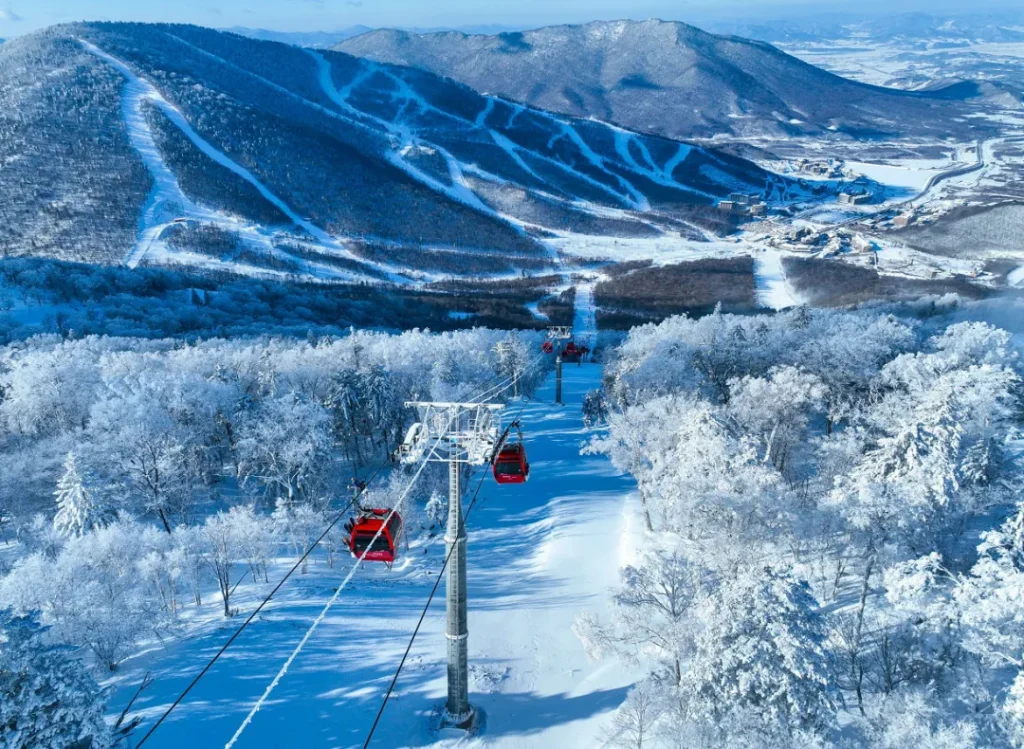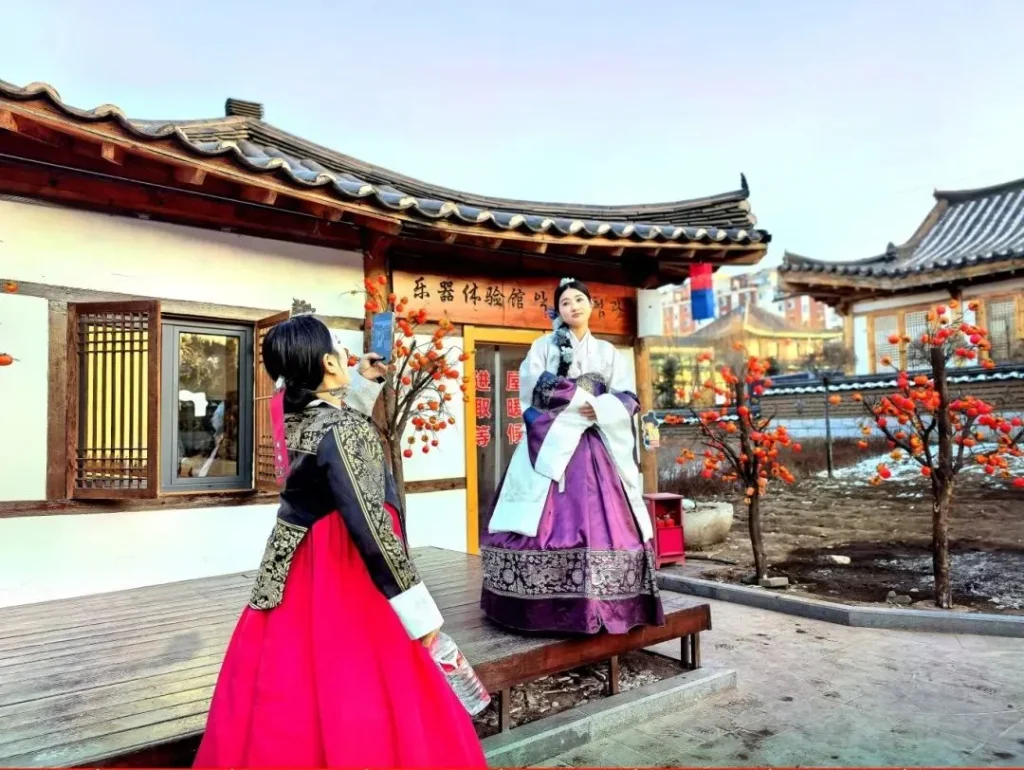
Destinations
This is your gateway to discovering China’s beauty! Whether it’s your first visit or a deeper exploration, we’ve got you covered.
Jilin
Jilin Province, a gem in Northeast China, is like a dazzling pearl blending spectacular natural scenery, pristine ecosystems, and diverse cultures. It offers visitors from around the world a feast for the senses that changes beautifully with the seasons. Here’s a glimpse into its unique charm:

1. Nature’s Beauty Through the Seasons

Jilin’s landscapes have a special rhythm. Winter brings the world-class phenomenon of Rime Ice (雾凇 – Wùsōng). Along the Songhua River (松花江), temperature differences cause trees to be coated in fluffy, crystalline ice, creating a dreamlike scene often described as “thousands upon thousands of pear trees blossoming.” Even UN experts recognize it as a rare global form of rime. Changbai Mountain (长白山), the highest peak in Northeast Asia, isn’t just the source of three major rivers (Songhua, Tumen – 图们江, and Yalu – 鸭绿江); its unique volcanic terrain, rich vertical vegetation zones, and the stunning Heaven Lake (天池 – Tiānchí) have earned it recognition as a UNESCO Man and Biosphere Reserve, showcasing the raw power of pristine nature. As the seasons turn, Jilin offers ever-changing beauty: the fresh green forests of spring, the cool average 22°C summer escape, the riot of colors in autumn’s forests, and the silvery wonderland of winter – a natural masterpiece that’s never the same twice.
2. An Ice Kingdom of Ultimate Experiences

Known as one of the world’s top three powder snow destinations, Jilin’s snow resources rival those of the European Alps. It boasts Asia’s largest ski resorts and deeply integrates ice and snow with culture. You can head to Chagan Lake (查干湖) to witness the thousand-year-old tradition of winter fishing, experiencing the ancient wisdom of “China’s last fishing tribe.” Or, try your hand at making fish-skin paintings (鱼皮画 – Yú Pí Huà) in an intangible cultural heritage workshop, seeing how traditional Hezhe (赫哲族) art meets the modern snow economy. Skiing, ice sculpting, rime photography, and many other activities fill the snowy landscapes with cultural warmth and economic vitality.
3. An Ecological Paradise Teeming with Life

From the vast eastern forests to the expansive western wetlands, Jilin’s biodiversity is astounding. Changbai Mountain preserves a complete vertical ecosystem, earning it the nickname “species gene bank.” The Xianghai Wetlands (向海湿地) in the west are a haven for red-crowned cranes, attracting the vast majority of the world’s Siberian cranes each year. The fertile black soil in central Jilin has nurtured farming civilizations for centuries, while the western Horqin Grasslands (科尔沁草原 – Kē’ěrqìn Cǎoyuán) and numerous lakes create a paradise for birds, forming a unique ecological map described as “white cranes in the west, tigers and leopards in the east.” This harmony between people and nature has made Jilin a key wetland conservation area and an eco-tourism demonstration zone.
4. A Cultural Melting Pot of Ethnic Flavors

Jilin is home to many ethnic groups, making its culture as colorful as a rainbow. Listen to the Gayageum (伽倻琴 – Jiāyāqín) played by the Korean ethnic group in Yanbian (延边), watch their traditional swing games, feel the horsemanship spirit of the Qian Guo Er Luos Mongols (前郭尔罗斯蒙古族), witness Manchu Shaman dances (满族萨满舞蹈), or experience a traditional Ula wedding (乌拉婚礼). These all weave together into Jilin’s rich cultural tapestry. Historical sites are equally fascinating. The Capital Cities and Tombs of the Ancient Koguryo Kingdom (高句丽王城、王陵及贵族墓葬 – Gāogōulí Wángchéng, Wánglíng jí Guìzú Mùzàng), known as the “Oriental Pyramids,” tell tales of an ancient border kingdom. Changchun (长春), the cradle of New China’s film industry, continues its dialogue between industrial history and cinematic art. From experiencing intangible heritage skills to joining lively ethnic festivals, every step offers an immersive cultural journey.
A trip to Jilin is more than just seeing beautiful scenery; it’s a deep dive into ecology, snow culture, and diverse civilizations. With its refreshing 22°C summer breezes, the thrill of gliding on powder snow, the calls of cranes in the wetlands, and folk songs shared around a warm Kang bed-stove (火炕 – Huǒkàng), Jilin shares the Eastern philosophy of “harmony between heaven and humanity” (天人合一 – Tiān Rén Hé Yī) with the world.